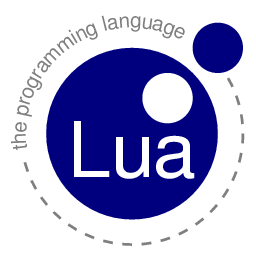Difference between revisions of "Lua: Coercion"
m (Created page with '{{Lua}} '''Coercion''' is the automatic conversion of one datatype into another. Generally, Lua attempts this when some operation is carried on one or more [[Lua: Datatypes|datat…') |
m |
||
| Line 9: | Line 9: | ||
Any datatype may be coerced into a string, either automatically or with <tt>tostring()</tt>. Numbers, strings, booleans, and nil will appear exactly as they would in the source code. Userdata, functions, threads, and tables will instead print out their type followed by their memory address; in the case of tables, their <tt>__tostring</tt> metamethod can be used to change how they are converted into a string. | Any datatype may be coerced into a string, either automatically or with <tt>tostring()</tt>. Numbers, strings, booleans, and nil will appear exactly as they would in the source code. Userdata, functions, threads, and tables will instead print out their type followed by their memory address; in the case of tables, their <tt>__tostring</tt> metamethod can be used to change how they are converted into a string. | ||
| − | Strings may or may not be coercible into numbers, automatically or with <tt>tonumber()</tt>; in order for this to be possible, the string must follow Lua's number literal rules | + | Strings may or may not be coercible into numbers, automatically or with <tt>tonumber()</tt>; in order for this to be possible, the string must follow Lua's number literal rules. <tt>tonumber</tt> will return <tt>nil</tt> if it cannot convert a type. |
Revision as of 21:54, 10 November 2009
| Lua |
|---|

|
| Basics |
| Intermediate |
| Advanced |
|
| XLua |
| Add to this template |
Coercion is the automatic conversion of one datatype into another. Generally, Lua attempts this when some operation is carried on one or more datatypes; the operation itself determines what type it will try to convert to, eg. numbers for '+' and strings for '..'. If coercion fails, Lua may issue an error if the original datatype is not expected by the operation.
As a special note, in two instances, Lua will not attempt coercion: table indexing and comparisons. In these cases, the tostring() and tonumber() functions must be used if you know the datatypes may be different. The equality operator == will accept two differing types, but will always return false; likewise, ~= will always return true. The inequality operators <, <=, >, and >= cannot compare differing types and will issue an error. As, for example, "2" and 2 are different entries in a table, coercion would more than likely be undesired.
Coercion types
Any datatype may be coerced into a boolean. nil and false will be treated as false; true and any other datatype is true regardless of their value.
Any datatype may be coerced into a string, either automatically or with tostring(). Numbers, strings, booleans, and nil will appear exactly as they would in the source code. Userdata, functions, threads, and tables will instead print out their type followed by their memory address; in the case of tables, their __tostring metamethod can be used to change how they are converted into a string.
Strings may or may not be coercible into numbers, automatically or with tonumber(); in order for this to be possible, the string must follow Lua's number literal rules. tonumber will return nil if it cannot convert a type.